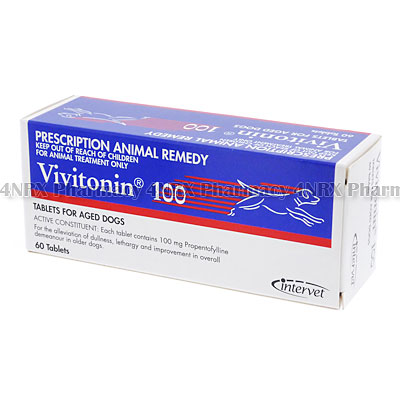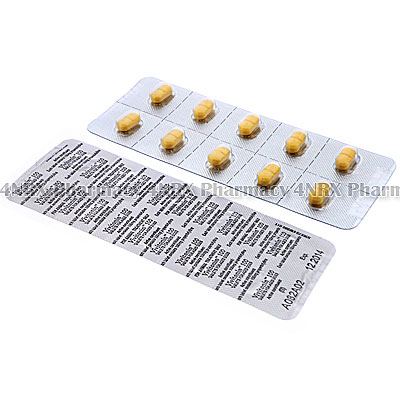 |
Home  4NRX Pet Pharmacy 4NRX Pet Pharmacy  Vivitonin (Propentofylline) Vivitonin (Propentofylline) |
|
|||||||||
|
Vivitonin (Propentofylline)
What is Vivitonin (Propentofylline) used for? Vivitonin (Propentofylline) is given to older dogs to help improve signs of aging, such as confusion, lethargy, frequent barking, lack of activity, dullness and breathlessness. These symptoms can be caused by aging or poor oxygenation. This medication helps to increase oxygenation and improve the dog's cardiovascular function. It can also help to improve the dog's brain function, while also improving the demeanor of older dogs, and may also increase the dog's willingness to exercise. How should I use Vivitonin (Propentofylline)? Vivitonin (Propentofylline) comes in the form of 100mg tablets, which may be halved if necessary. The dosage required depends on the dog's weight, with one 100mg tablet per 44lbs (20kg) of body weight given to the dog twice per day. Other dogs of different weights may require a different dosage, and you should ask the vet about the correct dosage required. These tablets should be given to the dog 30 minutes before meals. You may administer it directly onto the back of its tongue, or else mix it in with a very small amount of food. What are the side effects of Vivitonin (Propentofylline)? Vivitonin (Propentofylline) tablets are generally safe for dogs, and will not normally cause side effects. However, you should take your dog to see a vet immediately if you believe it to be suffering from side effects. Please Note These tablets are only to be used in dogs, and should never be taken by humans. Strictly follow all instructions provided to you by the prescribing vet while administering Vivitonin (Propentofylline) to your dog. Optimum and safe dosage can differ based on the dog and the condition it is being treated for. As this medication may be unsafe for certain dogs, it is essential you always inform the vet if your dog is used for breeding and is pregnant or lactating, as well as if it has any allergies, other illnesses, or ongoing health conditions, and if it is being given any other form of medication, supplements, or herbal products. Immediately seek emergency veterinary care if your dog has any allergic or hypersensitive reaction. Common signs of a reaction in dogs include hives, swelling, skin rashes, chest pains, as well as trouble breathing or swallowing. 

|
|||||||||||||||||